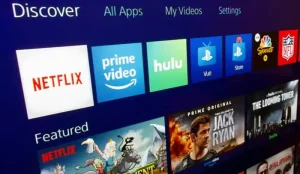Online gambling advertisements have dramatically changed how people interact with betting platforms. These ads appear across social media, websites, and mobile applications, creating constant exposure for potential gamblers. These advertisements’ strategic placement and design aim to capture attention and drive action, significantly impacting consumer decisions and habits.
Visual appeal strategies
Gambling advertisements utilize vibrant colours, engaging animations, and celebrity endorsements to attract viewers. These visual elements create immediate recognition and association with excitement and opportunity. Research shows that advertisements featuring bright colours like red and gold generate higher click-through rates than more subdued designs. Casinos and betting companies invest heavily in high-quality production to establish credibility and trustworthiness essential factors when asking consumers to deposit money.
Psychological triggers used
Gambling advertisements employ several psychological tactics to influence behaviour:
- Fear of missing out (FOMO) messaging that creates urgency
- Social proof through showing winners and testimonials
- Illusion of control by emphasizing skill-based games
These advertisements often highlight jackpot amounts and previous winners while minimizing the statistical improbability of winning, creating cognitive biases that affect decision-making.
Targeting methods
Modern gambling advertisements utilize sophisticated data analytics to reach specific audience segments. This targeting considers:
- Demographic information (age, gender, income)
- Past gambling behaviour
- Online browsing habits
- Geographic location
This precision allows companies to create personalized marketing campaigns that resonate with individual interests and behaviours, increasing conversion rates substantially.
Mobile applications impact
The rise of smart phone usage has created new avenues for gambling advertisements. Mobile apps frequently display gambling promotions through in-app advertisements, push notifications, and sponsored content. There are a variety of SDKs (Software Development Kits) available to programmingmobile developers to enable seamless integration of gambling-related advertising within game experiences.
Bonuses and promotions
It is common for gambling advertisements to heavily promote welcome bonuses, free bets, and loyalty rewards in order to attract new players and maintain existing ones. These promotions create a perception of “free money” or “risk-free” betting, encouraging initial deposits and continued play. The complexity of terms and conditions associated with these offers often goes unnoticed by consumers focused on the advertised benefits.
Societal effects
The prevalence of gambling advertisements contributes to the normalization of betting as an everyday activity rather than risk-taking behaviour. This normalization mainly affects vulnerable populations, including young adults and those with financial difficulties.
Research indicates exposure to gambling advertisements correlates with increased betting activity and can contribute to problem gambling behaviours in susceptible individuals. The constant visibility of these advertisements creates an atmosphere where gambling becomes perceived as a standard entertainment option.
Regulation challenges
Different countries maintain varying approaches to regulating gambling advertisements. Some nations prohibit certain promotions, restrict advertising times, or require warning messages about responsible gambling. However, the global nature of digital advertising creates significant enforcement challenges. Advocacy groups continue pushing for stricter regulations, while industry representatives argue for self-regulation and point to responsible gambling initiatives they support.
Gambling advertisements employ sophisticated marketing techniques to shape consumer perceptions and behaviours. Combining visual appeal, psychological triggers, targeted delivery, and promotional offers creates powerful influence mechanisms that drive engagement with betting platforms. As mobile technology continues advancing, the strategies used by gambling advertisers will likely evolve, requiring ongoing assessment of their impact on consumer behaviour and appropriate regulatory responses.




